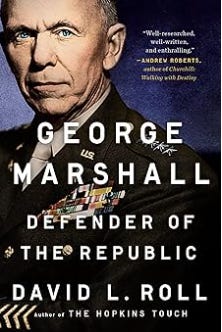A reminder that history is important.
History doesn't repeat itself, but it often rhymes.
Mark Twain is frequently credited with the aphorism: “History doesn't repeat itself, but it often rhymes.” Which means, while details change, circumstances change, settings change, and names change, similar events will essentially recycle.
Prime Minister Netanyahu gave a powerful speech yesterday. Regardless of your political party affiliation or the news source from which you obtain your information, everyone should listen and get rid of their prejudice. Despite almost eight decades since Israel's founding, most Americans remain ignorant of its history. It was also hard to see the paradox of the protest events happening in our nation’s capital.
What were the discussions between Truman and Marshall about Israel's establishment in 1948? During this period, what were the principal actors in Israeli history?
One of the most significant turning points in the process of making decisions leading to the State of Israel's recognition was the 1948 meeting between Truman and Marshall to discuss the founding of Israel. The meeting took place on May 12, 1948. Among the important participants in the conversation were Secretary of State George C. Marshall, President Harry Truman, and Truman's advisor, Clark Clifford.
While George Marshall opposed Israel's recognition, Clark Clifford was a fervent supporter of it. The undermining of a United Nations trusteeship proposal that the United States had supported, doubts about the Jewish state's capacity to repel Arab attacks, and the possible effects on U.S. relations with the Arab world—particularly with regard to oil supplies—were some of the reasons behind Marshall's opposition.
During this period, Chaim Weizmann, a well-known Zionist leader and the country's first president, and David Ben-Gurion, who would go on to become Israel's first prime minister, were also important figures in the country's founding. These individuals greatly aided in the founding and early administration of the new state.
This is a great book to read.


